Aristotle's Influence on Modern Biology
Aristotle, often hailed as the father of biology, has left an indelible mark on the field that resonates even in contemporary scientific discourse. His pioneering spirit and insatiable curiosity about the natural world laid the groundwork for biological sciences as we know them today. Imagine walking through a lush forest, observing the intricate dance of life around you. This is the essence of Aristotle's approach—he believed that to understand life, one must first immerse oneself in its myriad forms and functions. His foundational contributions to biological classification, empirical observation, and the philosophical underpinnings of science have shaped the very fabric of modern biology.
In exploring Aristotle's influence, we uncover a rich tapestry of methodologies that emphasize systematic categorization and careful observation. His work is not merely a relic of the past; it serves as a guiding light for biologists striving to make sense of the complexities of life. From his early classifications of animals and plants to his advocacy for empirical research, Aristotle's legacy is woven into the principles that govern biological inquiry today. As we delve deeper, we will see how his ideas have transcended time, influencing not only the scientific community but also our understanding of ourselves and the world around us.
Aristotle's influence can be likened to a seed planted in fertile soil; it has grown into a vast tree of knowledge, branching into various fields such as ecology, evolutionary biology, and taxonomy. His methods of observation and classification have inspired generations of scientists, leading to significant advancements in our understanding of biodiversity. In this article, we will explore the foundational aspects of Aristotle's contributions, examine the methodologies he championed, and reflect on how his ideas continue to resonate in modern biological research.
Aristotle's early attempts at classifying living organisms laid the groundwork for modern taxonomy, emphasizing the importance of systematic categorization based on observable characteristics and behaviors. His approach was revolutionary for its time, as he sought to categorize life forms not just by their similarities but also by their differences. This method of classification paved the way for future scientists to develop more sophisticated systems, such as the Linnaean classification we use today. Aristotle's classification system can be summarized in the following key points:
- Empirical Observation: Aristotle believed in examining organisms in their natural habitats, leading to a more accurate understanding of their characteristics.
- Hierarchical Structure: He organized organisms into a hierarchy, from simple to complex, which mirrors modern taxonomic systems.
- Functional Characteristics: Aristotle emphasized the importance of understanding the functions of different body parts in relation to the organism's survival.
This foundational work not only showcased Aristotle's genius but also established a systematic approach to studying life that persists in biological research today. His influence can be seen in how modern biologists categorize and study organisms, ensuring that the legacy of his work continues to thrive.
Aristotle championed empirical observation as a cornerstone of scientific inquiry, advocating for careful study of the natural world, which remains a critical aspect of biological research today. He understood that to make meaningful discoveries, one must engage directly with nature, observing and documenting the behaviors and characteristics of living organisms. This hands-on approach is akin to a painter studying the world around them before putting brush to canvas; it is through observation that one gains the insights needed to create a masterpiece.
His extensive field studies contributed significantly to the understanding of biodiversity, influencing the way biologists conduct research and document species in their natural habitats. Aristotle's meticulous notes on various species, their behaviors, and their environments provided a rich source of information that future generations of naturalists would build upon. This practice of documenting observations in the field is a hallmark of modern biology, demonstrating how Aristotle's methodologies have endured through the ages.
Aristotle's methodologies inspired subsequent naturalists, including Pliny the Elder and Linnaeus, who built upon his ideas to further advance the field of biology. These figures took Aristotle's foundational concepts and expanded them, refining our understanding of life and its complexities. The legacy of Aristotle can be seen in the way modern scientists approach their work, constantly striving to observe, classify, and understand the natural world around them.
Aristotle's blending of philosophical inquiry with scientific observation encouraged a holistic approach to studying life, fostering interdisciplinary connections that continue to benefit modern biology. He believed that understanding the purpose or "telos" of an organism was essential to grasping its place in the natural world. This philosophical perspective remains relevant today, as scientists seek to understand not just the mechanics of life but also the underlying principles that govern it.
Despite his contributions, Aristotle's ideas were not without flaws; some of his classifications and theories have been challenged and refined through modern scientific advancements. For example, his belief in the immutability of species has been overturned by the theory of evolution, which provides a more dynamic understanding of life on Earth. However, acknowledging these limitations does not diminish the significance of his work; rather, it highlights the evolving nature of scientific inquiry and the importance of questioning established ideas.
The enduring impact of Aristotle's writings on biology can be seen in contemporary scientific literature, where his concepts are frequently referenced and adapted to fit modern understandings. His ideas about species and their relationships laid the groundwork for later evolutionary theories, influencing thinkers like Darwin and shaping our understanding of biological diversity. Today, Aristotle's principles are still taught in biology courses, emphasizing the importance of his contributions to the field and their relevance in shaping future generations of scientists.
Aristotle's ideas about species and their relationships laid the groundwork for later evolutionary theories, influencing thinkers like Darwin and shaping our understanding of biological diversity. His observations on the variation among species and their adaptations to different environments were precursors to the concepts of natural selection and evolutionary change. This connection between Aristotle's work and modern evolutionary theory underscores the timelessness of his insights and their applicability to ongoing scientific discussions.
Today, Aristotle's principles are still taught in biology courses, highlighting the importance of his contributions to the field and their relevance in shaping future generations of scientists. His emphasis on observation, classification, and the interconnectedness of life continues to resonate in educational settings, inspiring students to explore the wonders of the natural world.
- What are Aristotle's main contributions to biology? Aristotle's main contributions include the classification of living organisms, the emphasis on empirical observation, and the integration of philosophy with science.
- How did Aristotle influence modern taxonomy? His systematic approach to categorizing organisms based on observable characteristics laid the groundwork for modern taxonomic systems.
- Why is Aristotle considered the father of biology? Aristotle is considered the father of biology due to his pioneering studies of living organisms and his foundational contributions to the field.
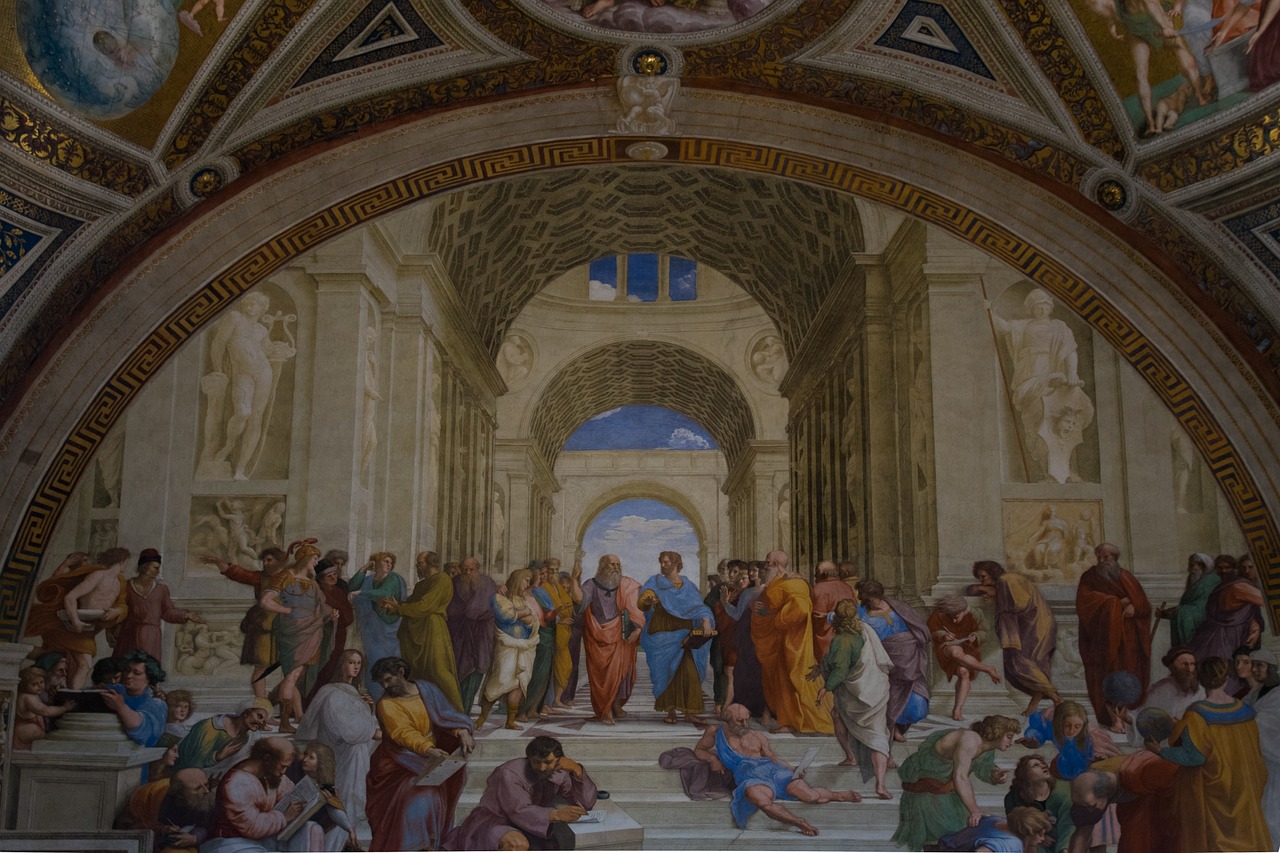
The Foundations of Biological Classification
Aristotle's early attempts at classifying living organisms laid the groundwork for modern taxonomy, emphasizing the importance of systematic categorization based on observable characteristics and behaviors. Imagine a world where everything is a chaotic jumble, and you can't tell a lion from a lizard! Aristotle stepped into this confusion and began to impose order. He meticulously observed various species, carefully noting their similarities and differences, which helped him create a framework that would influence biological classification for centuries to come.
One of the most significant aspects of Aristotle's classification system was his method of grouping organisms based on their physical traits and habitats. He categorized animals into two main groups: blooded and bloodless, a distinction that, while primitive by today's standards, was revolutionary at the time. This classification laid the foundation for later systems that would evolve into our current understanding of the biological hierarchy. Aristotle's approach can be seen as a precursor to the modern Linnaean system, which organizes life into a structured taxonomy of domains, kingdoms, phyla, and so on.
Aristotle's influence extends beyond just the initial classification; he also introduced the concept of natural kinds. This idea posits that organisms belong to specific categories based on inherent characteristics rather than arbitrary distinctions. For example, a dolphin and a shark might share similar environments and body shapes, but Aristotle would classify them differently due to their distinct biological traits. This emphasis on natural relationships among species is a principle that remains central to biological classification today.
Moreover, Aristotle's work was not limited to animals. He also made substantial contributions to the classification of plants, recognizing the importance of their structures and reproductive methods. His observations on the differences between various plant species laid the groundwork for botanical classification, which has evolved into a complex system that includes everything from flowering plants to fungi. His holistic view of nature encouraged scientists to look beyond superficial characteristics and consider the deeper connections that bind life together.
In summary, Aristotle's foundational contributions to biological classification were pivotal in shaping the way we understand and categorize life on Earth. His systematic approach, coupled with his emphasis on observable characteristics, not only organized the natural world but also ignited a passion for exploration and discovery that continues to drive biological research today. As we delve deeper into the complexities of life, we owe a significant debt to Aristotle, whose insights remain relevant in our quest to understand the diversity of organisms that share our planet.
- What was Aristotle's main contribution to biology?
Aristotle's main contribution to biology was his systematic classification of living organisms based on observable characteristics, which laid the groundwork for modern taxonomy. - How did Aristotle classify animals?
Aristotle classified animals into two main groups: blooded and bloodless, based on their physical traits and habitats. - What is the significance of natural kinds in Aristotle's work?
The concept of natural kinds suggests that organisms belong to specific categories based on inherent characteristics rather than arbitrary distinctions, influencing modern classification systems. - Did Aristotle contribute to plant classification?
Yes, Aristotle made significant contributions to the classification of plants, recognizing the importance of their structures and reproductive methods.

Empirical Observation and Methodology
Aristotle's approach to science was revolutionary for his time, primarily because he emphasized empirical observation as a critical component of understanding the natural world. Unlike many of his predecessors who relied heavily on philosophical reasoning or anecdotal evidence, Aristotle insisted on careful observation and systematic study. He believed that to truly understand living organisms, one must observe them in their natural habitats and document their behaviors, characteristics, and interactions. This commitment to observation laid the groundwork for what we now consider the scientific method.
In Aristotle's view, methodology was not just about collecting data; it was about interpreting that data in a meaningful way. He developed a framework that encouraged biologists to ask questions, make predictions, and test their hypotheses through observation. This iterative process of observation and analysis is still at the heart of biological research today. Whether it's studying the mating rituals of birds or the growth patterns of plants, modern scientists owe much to Aristotle's insistence on empirical methods.
Aristotle's field studies were extensive and varied. He meticulously documented different species, often providing detailed descriptions that included their habitats, behaviors, and physical characteristics. His observations were not just casual notes; they were systematic records that contributed significantly to the understanding of biodiversity. For instance, he classified animals based on their habitats—land, water, or air—and their physical traits, such as whether they had blood or not, which was a precursor to modern taxonomic classifications.
To illustrate his methodologies, consider the following table that summarizes some of Aristotle's key observational techniques:
| Technique | Description |
|---|---|
| Direct Observation | Studying organisms in their natural environments to gather real-time data. |
| Classification | Organizing species based on observable traits and behaviors. |
| Comparative Analysis | Examining similarities and differences among species to understand relationships. |
| Documentation | Recording findings in detail to create a comprehensive understanding of biodiversity. |
Furthermore, Aristotle's work inspired later naturalists who expanded upon his methodologies. For instance, Pliny the Elder and Carl Linnaeus both acknowledged Aristotle's contributions and built their own systems of classification and observation based on his principles. This chain of influence demonstrates how Aristotle's commitment to empirical methodologies not only shaped his own work but also paved the way for future generations of biologists.
In today's scientific landscape, the importance of empirical observation cannot be overstated. Modern biology relies heavily on the principles Aristotle championed. Researchers utilize advanced technologies and methods, such as genetic sequencing and ecological modeling, but the foundational idea of observing nature to understand it remains unchanged. As we continue to explore the complexities of life, Aristotle's legacy in empirical observation and methodology endures, reminding us that the path to knowledge begins with a keen eye and an open mind.
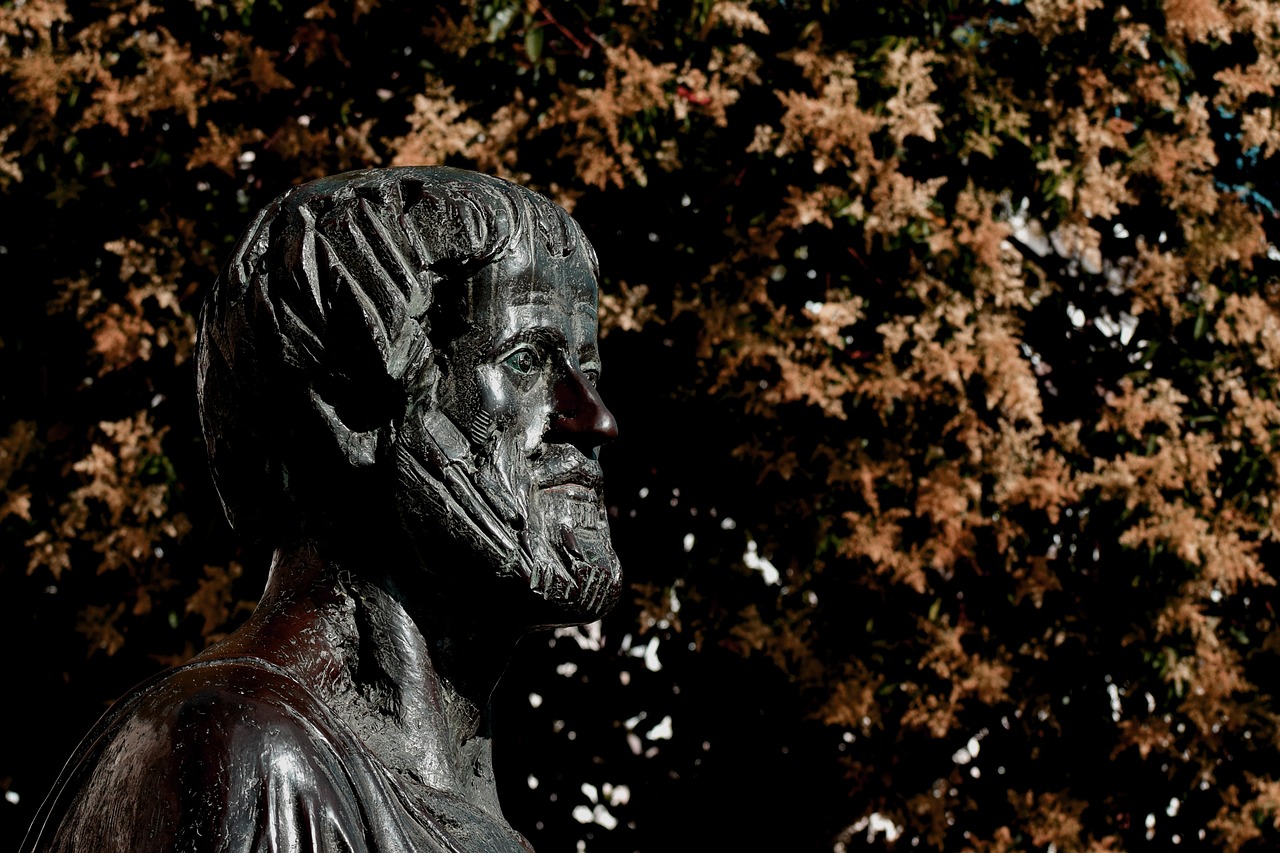
Field Studies and Natural History
Aristotle’s passion for the natural world was not merely theoretical; it was deeply rooted in his field studies, where he ventured into diverse environments to observe living organisms in their natural habitats. This hands-on approach allowed him to gather a wealth of information that transcended the limitations of mere speculation. Imagine a time when the world was a vast, uncharted territory, and the secrets of nature were waiting to be unveiled. Aristotle was like a curious explorer, armed with nothing but his keen observations and a desire to understand the intricacies of life.
During his explorations, Aristotle meticulously documented various species, their behaviors, and their interactions within ecosystems. His notes were not just a collection of observations; they were the building blocks of what we now recognize as natural history. By categorizing organisms based on their physical characteristics and habits, he laid the foundation for a systematic approach to studying life forms. Aristotle’s emphasis on direct observation is a principle that resonates with modern biologists, who continue to rely on field studies to gather data and enhance our understanding of biodiversity.
One of the most significant aspects of Aristotle’s fieldwork was his attention to detail. He not only focused on the organisms themselves but also on their environments. This holistic view is crucial because it recognizes that the interconnectedness of organisms and their habitats plays a vital role in ecological balance. Just as a painter considers the background when creating a masterpiece, Aristotle understood that a complete picture of life requires an appreciation of both the organisms and their surroundings.
Aristotle’s field studies also paved the way for future naturalists. His influence can be seen in the work of scientists who followed him, such as Pliny the Elder and Carl Linnaeus. They built upon Aristotle’s methodologies, refining and expanding them to create a more comprehensive understanding of the natural world. The legacy of his field studies is evident today, as biologists continue to conduct research in various ecosystems, documenting species and their behaviors in efforts to conserve biodiversity.
In essence, Aristotle’s approach to field studies was revolutionary for its time. It emphasized the importance of empirical evidence and observation, principles that remain integral to biological research today. By venturing into the natural world, Aristotle not only enriched his own understanding but also set the stage for future generations of scientists to explore and document the wonders of life.
- What were Aristotle's main contributions to biology?
Aristotle contributed to the classification of living organisms, empirical observation methods, and the integration of philosophy with scientific inquiry. - How did Aristotle influence modern taxonomy?
His systematic categorization based on observable traits laid the groundwork for modern taxonomy, influencing how we classify species today. - What is the significance of field studies in biology?
Field studies allow scientists to observe organisms in their natural habitats, providing essential data for understanding biodiversity and ecological relationships. - How are Aristotle's ideas still relevant today?
His principles of observation and classification are taught in biology courses and continue to shape scientific inquiry and education.

Impact on Later Naturalists
Aristotle's profound influence on later naturalists cannot be overstated. His meticulous observations and classifications of living organisms paved the way for future generations to explore the intricate tapestry of life. Think of Aristotle as the architect of biological inquiry; he laid the foundation upon which many naturalists built their own frameworks. For instance, his emphasis on categorizing organisms based on their observable traits and behaviors set a standard that resonated through the ages.
One of the most notable figures inspired by Aristotle was Pliny the Elder, whose work, Natural History, drew heavily on Aristotle's methodologies. Pliny expanded upon Aristotle’s ideas, documenting various species and their habitats, thus further enriching the field of natural history. His writings not only preserved Aristotle's legacy but also introduced a wealth of new information that would shape biological studies for centuries.
Another key figure influenced by Aristotle was Carolus Linnaeus, often referred to as the father of modern taxonomy. Linnaeus adopted and refined Aristotle's classification principles, developing a hierarchical system that is still in use today. His binomial nomenclature system—where each species is given a two-part scientific name—was revolutionary, allowing for greater clarity and consistency in the classification of organisms. This system can be seen as a direct descendant of Aristotle's earlier attempts at categorization.
Moreover, Aristotle's holistic approach to studying life encouraged naturalists to observe organisms in their natural environments. This idea has evolved into what we now recognize as field studies. The practice of conducting field research, as Aristotle did, has become a cornerstone of biological research, allowing scientists to gather data that is both rich and contextually relevant. It’s fascinating to think that the very methods we use today to understand biodiversity were inspired by a philosopher from ancient Greece!
In summary, the impact of Aristotle on later naturalists is a testament to the power of observation and classification in the biological sciences. His work not only influenced individual thinkers but also shaped the trajectory of biological research as a whole. The legacy of his methodologies continues to resonate, reminding us that the pursuit of knowledge is an ever-evolving journey, built upon the insights of those who came before us.
- What were Aristotle's main contributions to biology?
Aristotle contributed to the classification of living organisms, the importance of empirical observation, and the integration of philosophy with science. - How did Aristotle influence modern taxonomy?
His systematic categorization of organisms based on observable characteristics laid the groundwork for modern classification systems. - Who were some naturalists influenced by Aristotle?
Notable figures include Pliny the Elder and Carolus Linnaeus, who built upon Aristotle's ideas to advance biological sciences. - Are Aristotle's methods still relevant today?
Yes, many of his principles, especially those regarding empirical observation and field studies, are still fundamental to modern biological research.
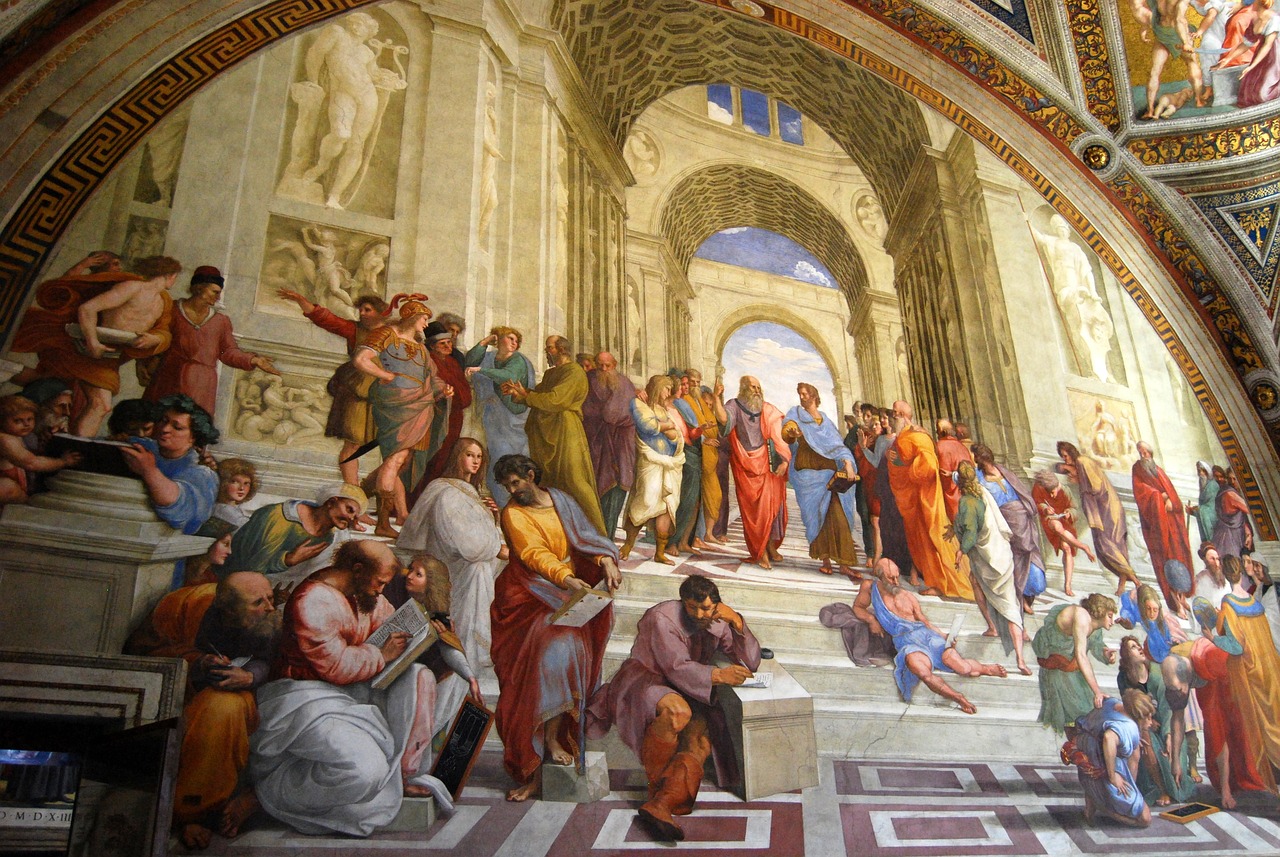
Integration of Philosophy and Science
Aristotle’s approach to the natural world was revolutionary, as he seamlessly wove together philosophy and science in a way that few had done before. Imagine a tapestry, where each thread represents a different aspect of knowledge—Aristotle was the master weaver, intertwining the threads of observation, reasoning, and ethical consideration to create a comprehensive understanding of life. This integration not only provided a robust framework for scientific inquiry but also set the stage for future generations of thinkers to explore the mysteries of the natural world.
His belief that philosophical inquiry could enhance scientific observation encouraged a holistic perspective on studying life. Unlike his contemporaries, who often viewed these fields as separate entities, Aristotle argued that understanding the essence of living organisms required both empirical evidence and philosophical reasoning. He posited that to truly grasp the nature of a species, one must consider not just its physical attributes but also its purpose and role within the ecosystem. This idea resonates with the concept of biological interconnectedness that modern scientists embrace today.
Aristotle's writings, particularly in works like Biology and Physics, demonstrate this integration. He meticulously documented his observations of various organisms while simultaneously questioning their existence and purpose. For example, he categorized animals based on their habitats and behaviors, but he also pondered profound questions about their nature and essence. This dual approach laid the groundwork for a more nuanced understanding of biology, where philosophical questions drive scientific inquiry.
Moreover, Aristotle's influence can be seen in the way modern scientists approach research. Today, interdisciplinary studies are becoming increasingly important, with biologists collaborating with philosophers, ethicists, and environmentalists. This collaborative spirit echoes Aristotle's vision, emphasizing that to tackle complex biological issues—like climate change or biodiversity loss—one must consider not just the scientific data but also the ethical implications and philosophical questions that arise. In this way, Aristotle's legacy continues to challenge and inspire contemporary thought, reminding us that the quest for knowledge is not merely about accumulating facts but about understanding the deeper connections that bind us to the natural world.
In summary, Aristotle’s integration of philosophy and science created a foundation for a holistic understanding of biology that remains relevant today. His ability to ask profound questions while grounding his inquiries in empirical observation is a model for modern scientists. As we continue to explore the complexities of life, we can draw inspiration from Aristotle's work, recognizing that the pursuit of knowledge is as much about asking the right questions as it is about finding the right answers.
- What was Aristotle's main contribution to biology? Aristotle's main contribution was his systematic classification of living organisms and his emphasis on empirical observation.
- How did Aristotle influence modern scientific methods? He championed empirical observation and encouraged the integration of philosophical inquiry with scientific study.
- Why is Aristotle still relevant in today's biology education? His principles of classification and holistic understanding of life continue to inform modern biological research and education.
- What is the relationship between philosophy and science in Aristotle's work? Aristotle viewed philosophy and science as interconnected, believing that philosophical questions could enhance scientific understanding.

Critiques and Limitations
While Aristotle's contributions to biology are undeniably significant, it is essential to recognize that his theories and classifications were not without their . For instance, Aristotle categorized organisms based on their observable characteristics, which, although groundbreaking at the time, often led to oversimplified classifications. His system of grouping animals, particularly, lacked the precision that modern genetics and molecular biology provide today. In many cases, organisms that appeared similar were placed in the same category, ignoring the complex evolutionary relationships that exist among species.
Moreover, Aristotle's belief in the concept of essentialism—the idea that species have fixed, unchanging essences—has been challenged by the modern understanding of evolution. This essentialist view posited that each species was created in its current form and did not consider the dynamic nature of species adaptation over time. The advent of evolutionary biology has shown that species are not static; they evolve and adapt based on environmental pressures, leading to a more nuanced understanding of biodiversity.
Additionally, some of Aristotle's observations were based on limited empirical evidence. Although he championed empirical observation, many of his conclusions were drawn from anecdotal evidence rather than systematic experimentation. For instance, his ideas about the heart being the center of intelligence and sensation have been thoroughly debunked by modern science. Such misconceptions highlight the importance of rigorous scientific methods that have become the standard in contemporary biology.
Despite these critiques, Aristotle's influence remains profound. His work laid the groundwork for future naturalists and scientists who sought to refine and build upon his ideas. The limitations of his classifications and theories serve as a reminder of the evolving nature of scientific understanding. Just as Aristotle's work was a product of its time, so too are our current scientific paradigms, which are constantly being tested and improved upon.
In summary, while Aristotle's methodologies and classifications were revolutionary, they also contained significant flaws that have been addressed by modern scientific advancements. His legacy is a testament to the ongoing dialogue between past and present in the field of biology, reminding us that each generation of scientists stands on the shoulders of those who came before them, continually striving for a deeper understanding of the natural world.
- What were Aristotle's main contributions to biology?
Aristotle contributed to biological classification, empirical observation, and the integration of philosophy with science. - How did Aristotle's ideas influence modern biology?
His methodologies inspired later naturalists and laid the groundwork for evolutionary theories. - What are some critiques of Aristotle's biological theories?
His essentialist views and reliance on anecdotal evidence have been challenged by modern evolutionary biology. - Are Aristotle's principles still relevant today?
Yes, his foundational ideas continue to be taught and referenced in contemporary biology courses.

The Legacy of Aristotle's Works
Aristotle's impact on the field of biology is not merely a footnote in history; it is a vibrant thread woven into the fabric of contemporary scientific discourse. His writings, which encompass a vast range of topics from anatomy to the classification of living organisms, continue to resonate in modern scientific literature. In fact, many of Aristotle's concepts are frequently referenced and adapted, showcasing a remarkable ability to transcend time and remain relevant in the face of evolving scientific paradigms. It's almost as if Aristotle's thoughts were seeds planted in fertile soil, sprouting into various branches of biological inquiry that we see flourishing today.
One of the most profound aspects of Aristotle's legacy lies in his approach to understanding life. He didn't just observe; he engaged with nature through a lens of curiosity and systematic inquiry. This methodology has become a cornerstone of scientific practice, influencing generations of scientists to adopt a similar ethos. The way we categorize species, study their behaviors, and understand their environments can all be traced back to Aristotle's foundational ideas. To illustrate this, consider the following table that highlights key contributions of Aristotle alongside their modern equivalents:
| Aristotle's Contribution | Modern Equivalent |
|---|---|
| Classification of animals based on habitat and behavior | Taxonomy and ecological studies |
| Empirical observation of species | Field research and biodiversity assessments |
| Concept of species as fixed entities | Evolutionary biology and genetics |
Moreover, Aristotle's influence extends beyond the realm of biology and into the heart of philosophical inquiry. His integration of philosophical thought with scientific observation encouraged a holistic approach to studying life. This interdisciplinary connection is crucial in modern biology, where the interplay between various scientific fields—such as genetics, ecology, and evolutionary theory—continues to deepen our understanding of life on Earth. It's like a complex tapestry, where each thread represents a different discipline, coming together to create a comprehensive picture of biological diversity.
Even in education, Aristotle's principles remain a foundational part of biology curricula worldwide. Students are introduced to his ideas not just as historical references but as essential concepts that underpin current biological theories. This approach ensures that future generations of scientists are equipped with the knowledge and understanding necessary to push the boundaries of what we know about life. The legacy of Aristotle is, therefore, not just a relic of the past but a living, breathing part of our scientific journey.
- What are some key contributions of Aristotle to biology?
Aristotle contributed to the classification of living organisms, emphasized empirical observation, and laid the groundwork for understanding biodiversity.
- How did Aristotle influence modern scientific methodologies?
His emphasis on careful observation and systematic categorization has shaped the methodologies used in contemporary biological research.
- Are Aristotle's ideas still relevant today?
Yes, many of Aristotle's concepts are still taught in biology courses and are referenced in modern scientific literature, demonstrating their enduring relevance.
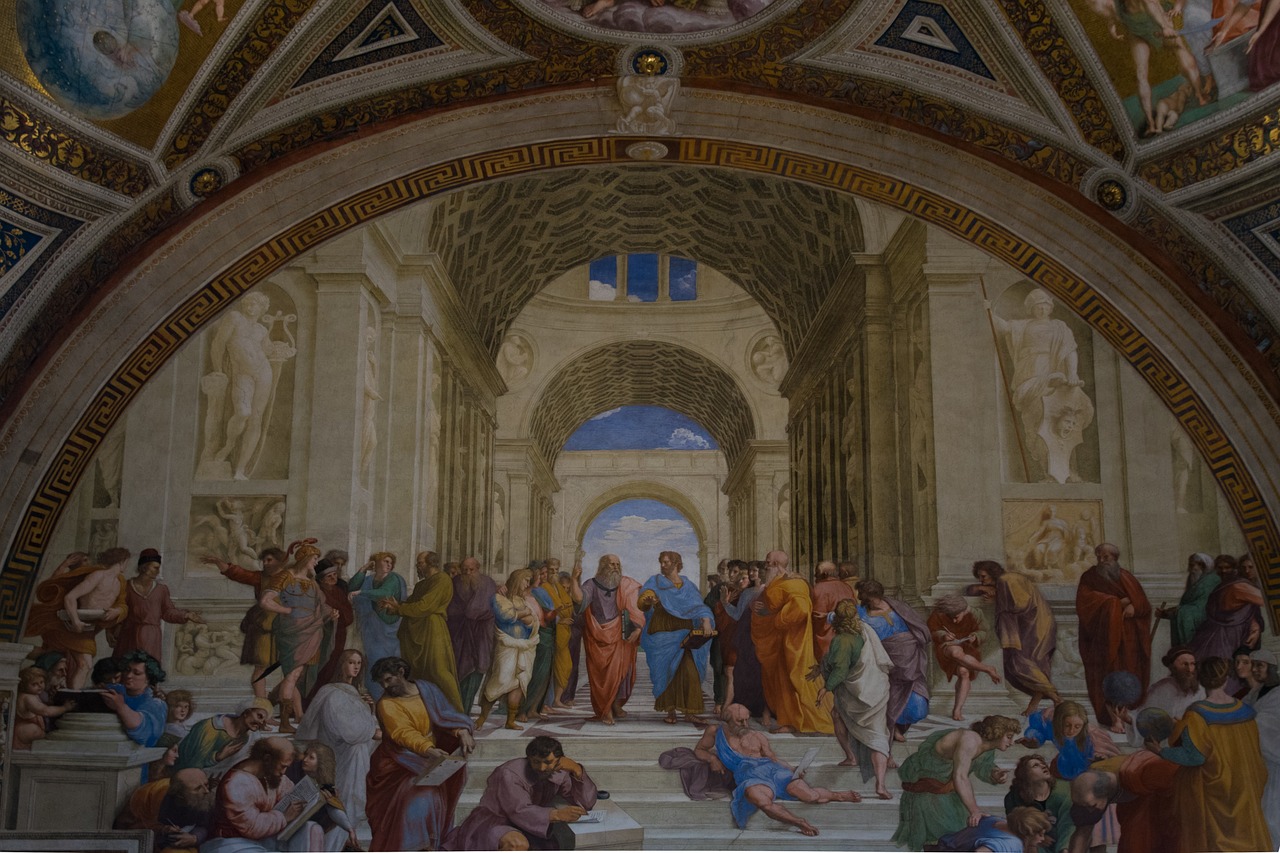
Influence on Evolutionary Theory
Aristotle's influence on evolutionary theory is profound and far-reaching, acting as a cornerstone upon which many subsequent thinkers built their ideas. His observations of the natural world led him to propose notions about the relationships between different species, effectively planting the seeds for what would later blossom into the field of evolutionary biology. Imagine a grand tapestry, where each thread represents a different species, interwoven in a complex pattern of life; Aristotle was one of the first to recognize that these threads are not isolated but rather interconnected in a larger narrative of existence.
One of Aristotle's key contributions was his concept of the "great chain of being," a hierarchical structure that organized living organisms from the simplest forms of life to the most complex. This idea suggested that all creatures had a place in the natural order, which paved the way for later theories of evolution. Although Aristotle did not propose a mechanism for how species changed over time, his thoughts on the relationships among organisms encouraged later scientists to explore these connections further. For instance, Darwin’s theory of natural selection, which revolutionized our understanding of evolution, can be seen as a direct descendant of Aristotle’s early classifications and relational thinking.
Furthermore, Aristotle's emphasis on observation and empirical evidence laid the groundwork for a more systematic approach to studying life. His insistence on examining organisms in their natural habitats and understanding their behaviors was revolutionary. This methodology resonated with later naturalists who sought to understand the dynamics of species and their environments. For example, the work of Charles Lyell and Alfred Russel Wallace, contemporaries of Darwin, was heavily influenced by Aristotle's principles of observation and classification.
To illustrate Aristotle's impact, consider the following table that outlines some key concepts he introduced and their relevance to modern evolutionary thought:
| Aristotle's Concepts | Modern Evolutionary Thought |
|---|---|
| Great Chain of Being | Hierarchical classification of life forms |
| Empirical Observation | Scientific method and field studies |
| Species Relationships | Phylogenetics and evolutionary biology |
| Natural History | Ecology and biodiversity studies |
In summary, Aristotle's legacy in evolutionary theory is not merely historical; it is a vibrant thread that continues to influence contemporary biological research. His ideas challenged thinkers to look beyond mere classification and to consider the underlying connections that bind life together. As we delve deeper into the mysteries of evolution, we can trace many of our current understandings back to the foundational insights provided by Aristotle, making his work as relevant today as it was over two millennia ago.
- What is the Great Chain of Being? The Great Chain of Being is a hierarchical structure proposed by Aristotle that organizes all living organisms from the simplest to the most complex, suggesting that every species has a specific place in nature.
- How did Aristotle influence Darwin? Aristotle's observations of species relationships and emphasis on empirical evidence laid the groundwork for later theories of evolution, including Darwin's theory of natural selection.
- What role did observation play in Aristotle's work? Aristotle championed empirical observation as a fundamental aspect of scientific inquiry, encouraging later naturalists to study organisms in their natural habitats, which is crucial in evolutionary biology today.
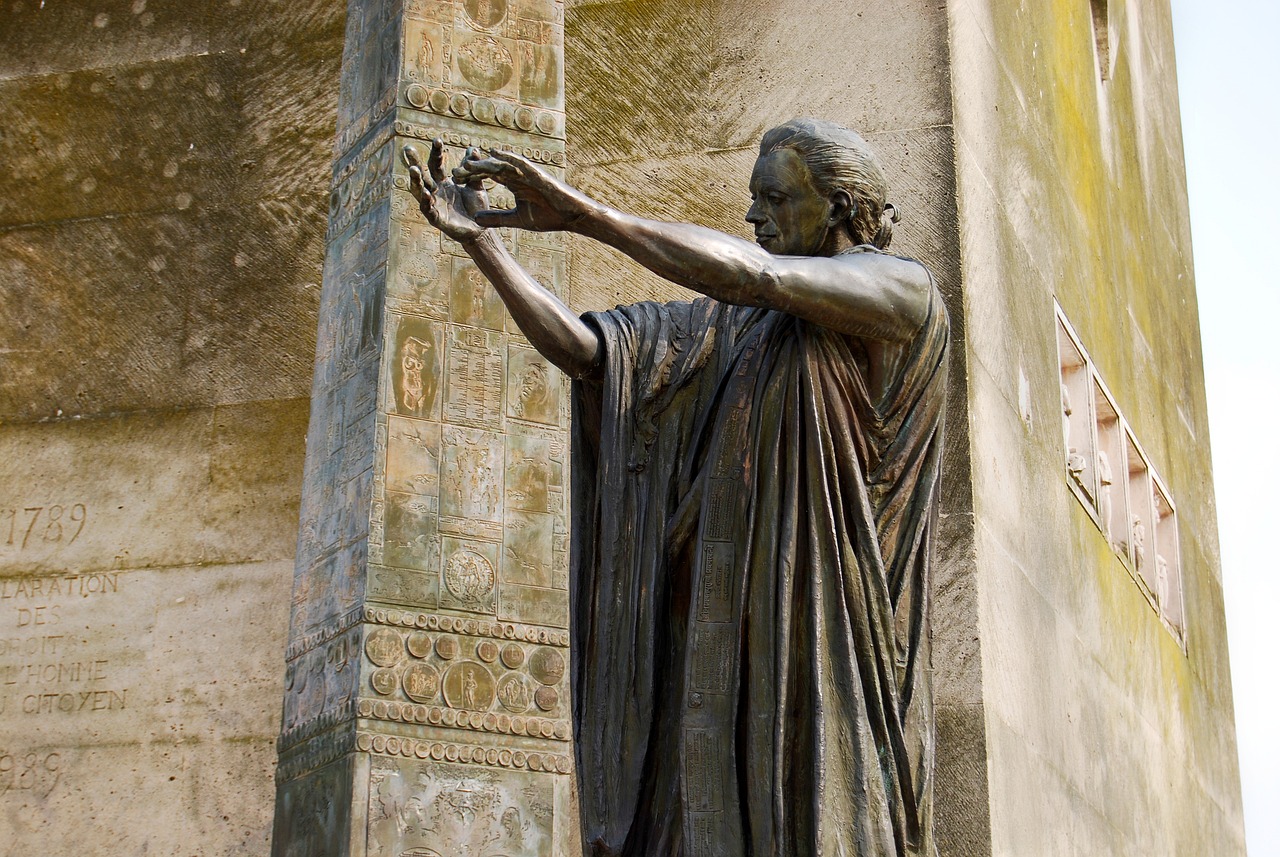
Continuing Relevance in Education
Even after centuries, Aristotle's principles remain a fundamental part of the education system, especially in the field of biology. His methods of inquiry and classification are not just historical footnotes; they are actively incorporated into modern curricula. Students are taught to appreciate the significance of Aristotle's work, not only as a foundation of biological understanding but also as a model for critical thinking and scientific exploration.
In classrooms around the world, Aristotle's influence can be seen in various ways:
- Taxonomy and Classification: Courses often begin with Aristotle’s classification methods, where students learn how to categorize organisms based on observable traits, a practice that is essential in biology today.
- Empirical Observation: Aristotle's insistence on empirical observation teaches students the importance of careful study and data collection, skills that are vital for any aspiring scientist.
- Philosophical Foundations: His blending of philosophy with science encourages students to think critically about the ethical implications of biological research and the interconnectedness of life.
Moreover, Aristotle's writings are frequently referenced in textbooks and academic papers, demonstrating his lasting impact on the discipline. For instance, students might encounter excerpts from his work, such as the History of Animals, which not only serve as historical context but also inspire discussions about the evolution of biological thought.
To illustrate the continuing relevance of Aristotle’s ideas in education, consider the following table that summarizes key concepts from his work and their applications in modern biology:
| Aristotle's Concept | Modern Application |
|---|---|
| Classification of Organisms | Taxonomy and Systematics |
| Empirical Observation | Field Studies and Research Methodology |
| Holistic Understanding of Life | Interdisciplinary Approaches in Biological Research |
In essence, Aristotle's legacy in education is not merely about memorizing facts; it’s about fostering a curiosity-driven approach to learning. Students are encouraged to ask questions, explore the natural world, and think deeply about their findings. This methodology shapes future generations of scientists who are not only knowledgeable but also passionate about their pursuit of understanding life.
As we look to the future, it's clear that Aristotle's influence will continue to resonate in biology education, inspiring students to become the next wave of thinkers and innovators. His teachings remind us that the quest for knowledge is a timeless journey, one that begins with observation and curiosity.
- What are the main contributions of Aristotle to biology?
Aristotle contributed significantly to biological classification, empirical observation, and the integration of philosophy with science, laying the groundwork for modern biological studies.
- How is Aristotle's work relevant today?
His methodologies continue to influence modern biology curricula, emphasizing the importance of classification, observation, and critical thinking in scientific inquiry.
- Why should students study Aristotle?
Studying Aristotle helps students understand the historical foundations of biological sciences and encourages a holistic approach to scientific exploration.
Frequently Asked Questions
- What were Aristotle's main contributions to biology?
Aristotle made significant contributions to biology, primarily through his classification of living organisms and his emphasis on empirical observation. He categorized species based on observable traits and behaviors, laying the groundwork for modern taxonomy.
- How did Aristotle's methodologies influence modern scientific practices?
Aristotle championed the importance of careful observation and field studies, which are crucial in biological research today. His approach encouraged scientists to document species in their natural habitats, paving the way for contemporary methodologies in natural history.
- What is the significance of Aristotle's integration of philosophy and science?
Aristotle's blending of philosophical inquiry with scientific observation fostered a holistic approach to studying life. This interdisciplinary connection remains relevant, as it encourages modern biologists to consider various perspectives when conducting research.
- Did Aristotle's ideas face any critiques?
Yes, while Aristotle's contributions were foundational, some of his classifications and theories have been challenged and refined by modern science. This ongoing evolution of understanding highlights the dynamic nature of biological research.
- How does Aristotle's legacy continue to influence modern biology?
The impact of Aristotle's writings is evident in contemporary scientific literature, where his concepts are frequently referenced. His ideas about species relationships also laid the groundwork for evolutionary theories, influencing key thinkers like Darwin.
- Are Aristotle's principles still taught in biology courses today?
Absolutely! Aristotle's principles remain an essential part of biology education, illustrating the importance of his contributions and their relevance in shaping future generations of scientists.



















